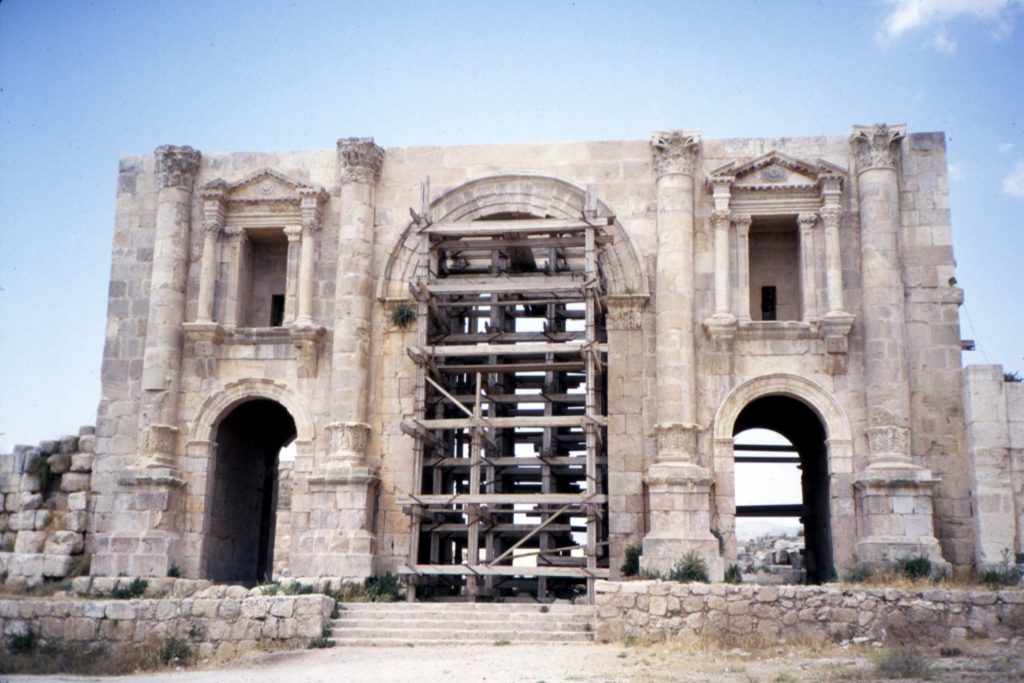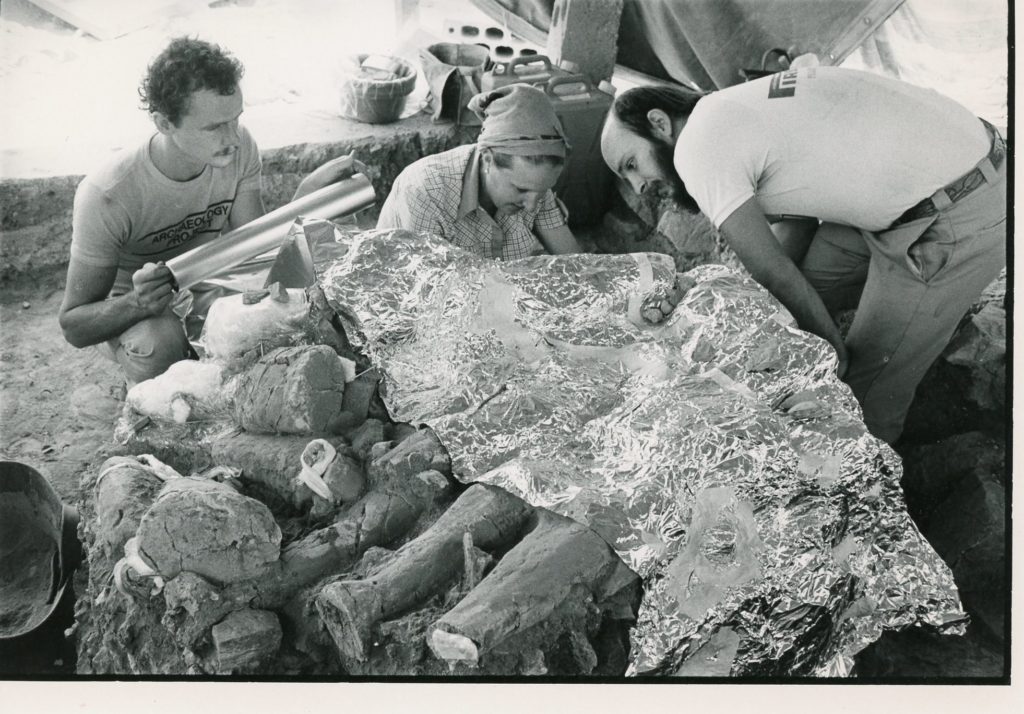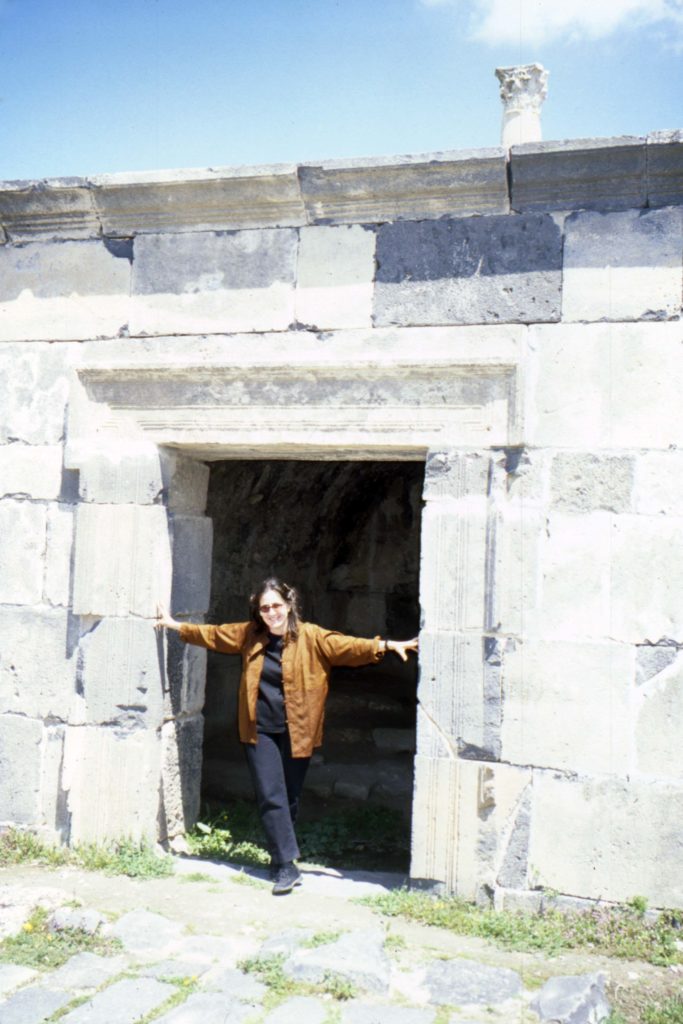by Jessica Holland, Archival Projects Consultant
We are delighted to announce that, based on the success of the ACOR Photo Archive Project to digitize and make available online 30,000 images covering a range of thirteen countries across the Middle East and North Africa (MENA) region, the U.S. Department of Education has awarded ACOR an American Overseas Research Center (AORC) Title VI grant for a new project entitled “ACOR Digital Archive: Developing a Multimedia Teaching and Learning Resource.”
What will the ACOR Digital Archive include?
The ACOR Digital Archive will make over 18,000 digital objects of interest to students and scholars of the Middle East freely available and will engage 10,000 U.S. educators of diverse backgrounds with archival resources. The project will digitize archival materials of interest stored on legacy media formats, such as Betamax and VHS, and will share these openly online for the first time. Our archives include rare audio and video recordings of lectures stretching back to the 1980s, as well as project documents relating to landmark excavations, such as the Petra Church Project, which will be digitized and made available to all, without charge.
Photographs from countries where U.S. researchers face restrictions on funded travel, such as Syria, Libya, and Tunisia, will be prioritized for digitization to help support scholars unable to conduct their work in person. Many of these photos will come from ACOR Ambassador Barbara A. Porter’s photograph collection. Photos from archaeologist Brian Byrd will also be digitized, including historic action shots of the discovery and removal of the Ain Ghazal statues for conservation and study. By 2024, the ACOR Digital Archive will have made almost 50,000 digital objects available for anyone to search, share, and reuse.
“ACOR offers key resources for the Middle East. Its holdings of visual resources, particularly the photo archive, is a significant resource for scholars worldwide. The proposed project would take advantage of previously and currently funded projects to further disseminate ACORs’ holdings.”
—Anonymous peer reviewer, 18 May 2020
The ACOR Digital Archive website will be fully accessible in both languages. We will increase the amount of Arabic-language description of our archival materials through the project, responding to a growing demand for MENA materials to be accessible in both English and Arabic. As one of our proposal’s anonymous peer reviewers put it: “[L]anguage learners have a need for high-quality, free content for integration with their courses.” We wholeheartedly concur and look forward to bridging this gap for both second-language speakers and archival users in the region.
Educator Fellowships
Through the expanded project, we will engage new audiences and better serve current users by working with U.S. educators to develop curricular materials (including lectures, lesson plans, syllabi, and interactive media). Our collections—multimedia documentation of the region’s cultural, natural, and material heritage and development—will be made available with corresponding educational resources relevant to subject areas within the humanities and social sciences, as well as subjects with a broad global comparative perspective, such as sustainability, ecology, anthropology, art, tourism, and heritage.
A key component of the project will be the establishment of educator fellowships, which will serve as opportunities for faculty at community colleges, Minority Serving Institutions (MSIs), and Historically Black Colleges and Universities (HBCUs) to develop teaching resources relevant to their courses based on our archival materials. These practical, freely available curricular materials will be widely circulated within community college and MSI networks.
ACOR typically provides resources to more than 13,000 North American, Jordanian, and international researchers and students annually, and with this project’s proposed outreach to 10,000 MSI, community college, and HBCU faculty members, we expect to significantly expand our engagement with U.S. educators, providing long-term benefits for public understanding of the Middle East.
Why are online archives important?
Online archives are essential for researchers focused on the Middle East to continue to advance knowledge and deepen understanding about the region, as access to physical archives may be restricted or unobtainable, especially for U.S. nationals, due to travel prohibitions and funding limitations.
Accommodating both area studies and global education courses
Preserving access to archival materials just one step. Without sustained engagement with institutions that activate these resources, digitization efforts can easily fail to meet their goals of breaking down barriers to information. With interest in the region intensifying, Middle Eastern studies faculty face high demands from their students and from the media for public education on controversial contemporary issues.1 Our digital archive recognizes the need to support both in-depth area-studies education and broad global comparative education programs, providing links between potentially disjointed areas of research. The archive will soon serve as a ready resource for time-constrained instructors to draw from when preparing lectures and other educational materials on critical regional topics, useful in both subject-specific and global studies courses.
“The assertive outreach planned for community colleges and minority serving institutions reflects comprehensive insights into US higher education.”
—Anonymous peer reviewer, 18 May 2020
“[T]here is a need for better materials for international and global course content, as well as ready-made materials for use by non-experts.”
—Anonymous peer reviewer, 18 May 2020
Resources for Arabic as a foreign language educators (U.S.):
In a recently published study using the U.S. Department of Education Evaluation of Exchange, Language, and International and Area Studies (EELIAS) database, Elizabeth Worden and Jeremy Browne (2018) demonstrate the “disconnect” between the demand for proficient speakers of Middle Eastern languages and the ability of Title VI centers to produce them, particularly at the master’s level.2
Online open-access platforms lack archival resources related to the Middle Eastern region that are accessible in both English and Arabic. This is an obstacle for U.S. educators teaching Arabic and their students who rely on archives to carry out their research and assignments. Navigating websites entirely in Arabic for the first time is daunting for any beginner- or intermediate-level Arabic student. Similar challenges are faced by upper-intermediate and superior-level Arabic students when they make their initial attempt to access technical archives in the Middle Eastern region, particularly when the sole language of cataloging and reference is Arabic.
Among the relatively few other archives beginning to address the need for dual-language interfaces are the Council on Library and Information Resources’ Digital Library of the Middle East, NYU Abu Dhabi’s Akkasah archive, and the Arab Image Foundation, all of which launched Arabic-language interfaces in 2020.
Our online archive is already a key resource for scholarship on the MENA region, but through the ACOR Digital Archive project (2020–2024), it will become a critical tool for U.S. educators seeking to deliver a global education.
1. Shami and Miller-Idriss 2018.
2. Worden and Browne 2018.
References
Shami, Seteney and Cynthia Miller-Idriss (eds.). 2018. “Introduction: The Many Crises of Middle Eastern Studies.” In Seteney Shami and Cynthia Miller-Idriss (eds.), Middle Eastern Studies for the New Millennium: Infrastructures of Knowledge, 1–30. New York: New York University Press.
Worden, E., and J. Browne. 2018. “Arabic Language Learning on US Campuses after 9/11: ‘Needs’ and Challenges.” In Seteney Shami and Cynthia Miller-Idriss (eds.), Middle Eastern Studies for the New Millennium: Infrastructures of Knowledge, 225–250. New York: New York University Press.





